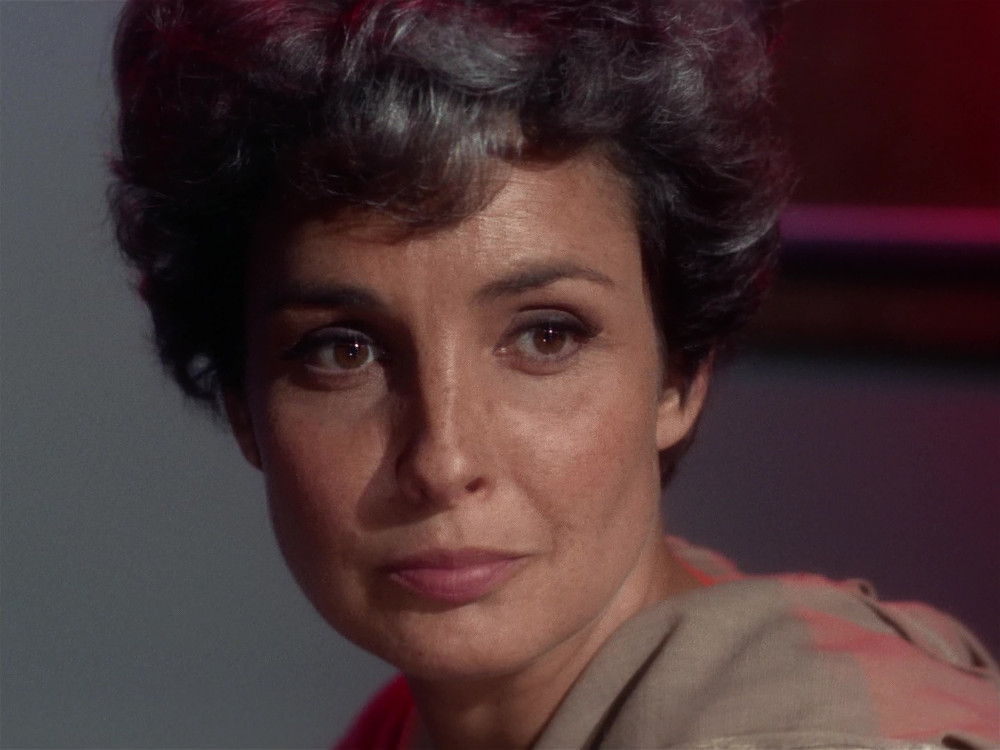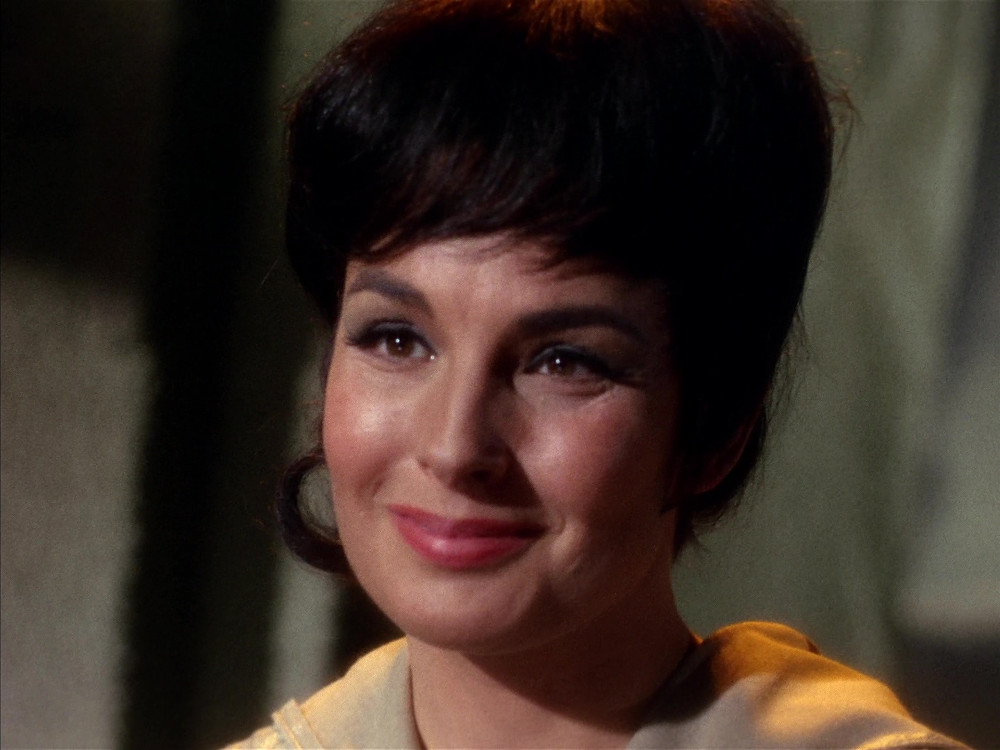Difference between revisions of "Nancy Crater (FASA)"
From Trekipedia
m |
m |
||
| Line 1: | Line 1: | ||
{{MyriadCraterNancy}} | {{MyriadCraterNancy}} | ||
| − | {{ImageInfoBox2|name=Nancy Crater|file=crater_nancy-tos05.jpg|caption=Nancy Crater ( | + | {{ImageInfoBox2|name=Nancy Crater|file=crater_nancy-tos05.jpg|caption=Nancy Crater ({{TOS06}})}} |
| − | {{ | + | {{Species|{{link|FASA|Humans|Human}}}} |
| − | {{ | + | {{Sex|Female}} |
| − | {{ | + | {{Died|c.{{date|FASA|2205}}}} |
| − | {{ | + | {{First|{{TOS06}} ({{date|Production|1966|9|8}})}} |
| − | {{ | + | {{Portrayed|[[Jeanne Bal]]}} |
| − | {{ | + | {{Ad|AmazonTOSBD}} |
|}</div> | |}</div> | ||
| − | {{ | + | {{banner|FASA}} |
| − | Before Nancy Crater<ref name="Bierce"/> was | + | Before Nancy Crater<ref name="Bierce"/> was {{link|FASA|marriage||married}} to {{link|FASA|Professor}} {{link|FASA|Robert Crater}}, she had a brief relationship with {{link|FASA|Dr.}} {{link|FASA|Leonard McCoy}} circa {{date|FASA|2197}}. The Craters began an {{link|FASA|archaeology||archaeological}} dig on planet {{link|FASA|M-113}}<ref name="M113"/> in {{date|FASA|2202}}, studying the remains of a long-dead {{link|FASA|M-113 civilization||civilization}}. Some time around {{date|FASA|2205}}, she was killed by the {{link|FASA|M-113 creature}}. A {{link|FASA|sentience||sentient}} being, the creature was spared by Robert when he realized that it was the last of its kind and only killed in order to survive. It took Nancy's form and continued to live with him until {{link|FASA|Stardate}} {{link|FASA|2207|SD1513|1513.8}}.<ref name="TOS06"/><ref name="TOS06Blish"/> |
| − | {{ImageBox2|float=left|file=crater_nancy_young-tos05.jpg|caption=Nancy Crater (c.[[2197 (FASA)|2197]]) ( | + | {{ImageBox2|float=left|file=crater_nancy_young-tos05.jpg|caption=Nancy Crater (c.[[2197 (FASA)|2197]]) ({{TOS06}})}} |
{{References}} | {{References}} | ||
<references> | <references> | ||
| − | <ref name=" | + | <ref name="TOS06">{{RefTOS06}}</ref> |
| − | <ref name=" | + | <ref name="TOS06Blish">{{RefTOS06Blish}}</ref> |
| − | <ref name="Bierce">In the novelization of the episode by [[ | + | <ref name="Bierce">In the novelization of the episode by [[James Blish]], Crater was instead named Bierce.</ref> |
| − | <ref name="M113">In the novelization of the episode by [[ | + | <ref name="M113">In the novelization of the episode by [[James Blish]], the name of the planet was Regulus VIII, rather than M-113.</ref> |
</references> | </references> | ||
{{DEFAULTSORT:Crater, Nancy (FASA)}} | {{DEFAULTSORT:Crater, Nancy (FASA)}} | ||
| Line 25: | Line 25: | ||
[[Category:Deceased]] | [[Category:Deceased]] | ||
[[Category:TOS]] | [[Category:TOS]] | ||
| + | [[Category:Books]] | ||
[[Category:Film]] | [[Category:Film]] | ||
[[Category:FASA Timeline]] | [[Category:FASA Timeline]] | ||
Revision as of 06:24, 8 August 2023
Myriad Universes: Nancy Crater
Nancy Crater
| Species | Humans |
| Sex | Female |
| Died | c.2205 |
| First Appearance | TOS06 (8 Sep 1966) |
| Portrayed by | Jeanne Bal |
| Advertising |
Before Nancy Crater[1] was married to Professor Robert Crater, she had a brief relationship with Dr. Leonard McCoy circa 2197. The Craters began an archaeological dig on planet M-113[2] in 2202, studying the remains of a long-dead civilization. Some time around 2205, she was killed by the M-113 creature. A sentient being, the creature was spared by Robert when he realized that it was the last of its kind and only killed in order to survive. It took Nancy's form and continued to live with him until Stardate 1513.8.[3][4]
Notes and References
- ↑ In the novelization of the episode by James Blish, Crater was instead named Bierce.
- ↑ In the novelization of the episode by James Blish, the name of the planet was Regulus VIII, rather than M-113.
- ↑ Roddenberry, Gene (Executive Producer). "The Man Trap". Star Trek, season 1, episode 1 (Production number 06). Directed by Marc Daniels. Written by George Clayton Johnson. Desilu Productions. 8 September 1966.
- ↑ Blish, James (Author). "The Unreal McCoy," Star Trek 1. Star Trek. Novelization . Adapted from "The Man Trap," written by George Clayton Johnson. Ballantine Books. January 1967.


